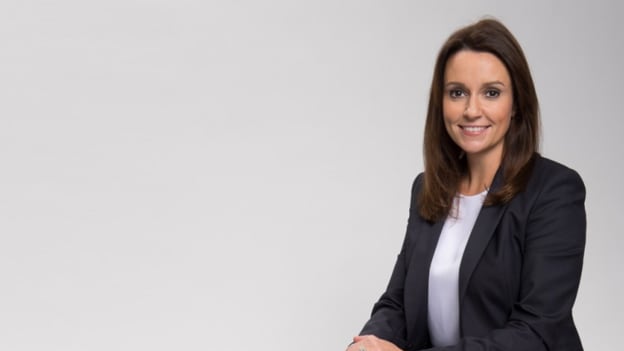COVID-19 will change how we think about people and work: Cisco's Deborah Woollard

Deborah Woollard, Cisco's VP of Human Resources for Asia Pacific, Japan, and China, leads a team that manages the welfare of over 20,000 Cisco employees in 16 countries across the region—during a period when the demand for Cisco's services has skyrocketed and the number of Webex meetings held around the world every day runs into the millions.
People Matters asked Deborah how she and her HR team are juggling business priorities with employee perspectives, as the COVID-19 pandemic and its associated lockdowns, social difficulties, and health worries drag out through the second quarter of 2020. Here are the highlights of the conversation.
How is the "new norm" of WFH going over at Cisco?
Cisco's business being what it is, flexible working practices are very much in our DNA. So the magnitude of the shift is not as great as it might have been. Not only are we able to technologically enable our employees, culturally it is a far more accepted way of working. We're very adult about the way we treat our employees—people don't have to be in the office to be seen as working. So we've been able to adapt quickly, and then we've been able to not only support our customers technologically, but also offer them some insights and act as a role model for those companies making the transition to remote working.
The difference between normal times and COVID-19 is of course that even though we are very accustomed to flexible working, we really haven't had a situation where everybody is working remotely at the same time. So even for us, our teams are missing those moments where everybody is coming together and connecting. We're being challenged to keep that connectivity, that closeness and that family feeling as a company.
With the demand for Cisco's services so high right now, how are you and your HR team supporting employees with their workload?
The big challenge is really ensuring that employees have the permission to balance themselves. Our technology is everywhere at the moment, sometimes supporting really critical sectors, and so sometimes people might end up working through the night to get the collaboration technology set up for a medical facility or an educational institution, customers who urgently need to get online. They have been so diligent during this period that honestly, even if you tried to stop them you couldn't.
So what's really important for us, culturally, is that they have the permission to take their downtime—that they know that once their work is complete, they can reboot, reset, and take the time off that they need. It's our job at the back end to provide the support and tools so that if someone is mentally stressed and needs an outlet, or has financial difficulties, they have some way of dealing with it.
It's really about knowing that someone is striving to do their best, and trusting them to work the hours that they need, and that absolutely means ensuring they know that they have the permission to take time.
How about the management levels? Do you also need to provide them with extra support?
Managers are a really important group of people to focus on in the organization, and this is also a really challenging time for the leaders. They're having to juggle their own work-life balance at the same time as having to support their team.
Our regular practice is to set aside a week every quarter to focus just on leaders, with the idea of helping them build capabilities and learn from the examples of the senior leaders. So for our next session, we're specifically looking at vulnerability and how to help leaders be more vulnerable, as well as how to support team members who might be feeling isolated or vulnerable.
The need to help leaders be vulnerable is coming up quite frequently during this crisis. Do you think it will be a lasting trend?
I'm hearing a lot about vulnerability too. We did a recent check-in with our senior leaders, asked them how they were feeling, and many of them said: "I'm feeling a bit helpless right now, because these things are happening around me and I can't control them. I'm feeling overwhelmed by what I'm seeing on the news."
I think that out of the many things we take away from this experience, one is that we will all have to learn to be more flexible and adaptable in how work gets done. Equally, we are going to have to think about how people are far more authentic. A lot of the persona you create when you go to work and keeping parts of your life separate—when you are working in a remote environment, a lot of that is being broken down. And I think one of the great things about the current situation is that rather than trying to hide it, it gives our employees the opportunity to say: "This is me. This is my life."
What other big changes do you foresee in the way we think about work?
If you look at the 2008 global financial crisis, it was the time of the CFO; and I think COVID-19 is the time of the CHRO. This journey through COVID-19 is giving us the opportunity to take another look at a lot of the barriers between what we traditionally think of as work versus life, and rethink the expectations that we have.
It will accelerate the thinking around how work gets done, and I think it opens up a lot of opportunity for discussions around the hours people work, the flexibility we bring to work and life, which in turn allows us to start thinking about very different pools of talent and the way we approach work. For example, do we always have to think of it in terms of part-time or full-time? Can it be far more project-based? Can we invite people at very different career junctures to work with us? Do we need to be in the office? Can people decide to have a two-day-a-week office?
The other thing is the employee perspective. Traditional employees have always said that they prefer to come into the office every day, but now that they have had the opportunity to work differently and see the opportunities it presents for them to find a different balance in their lives, I think we will see them rethinking their own approach. Even our senior leaders might reconsider how they work!














